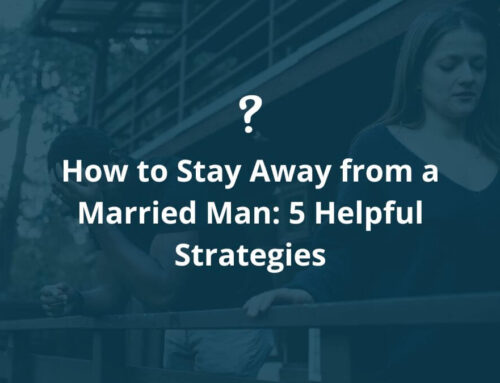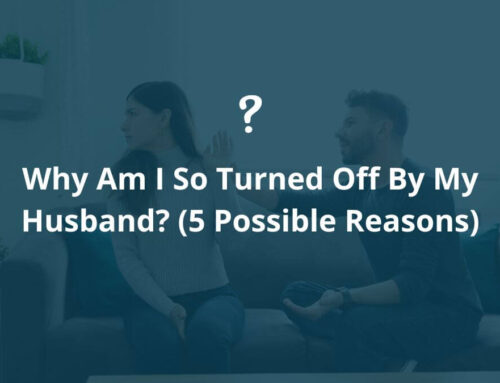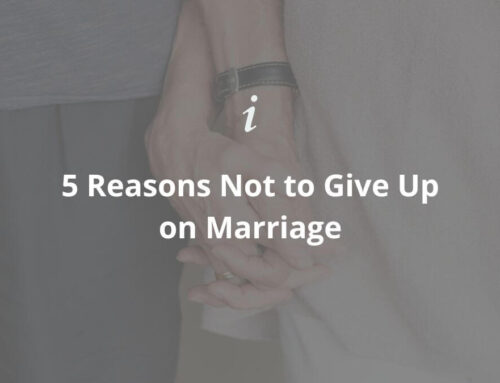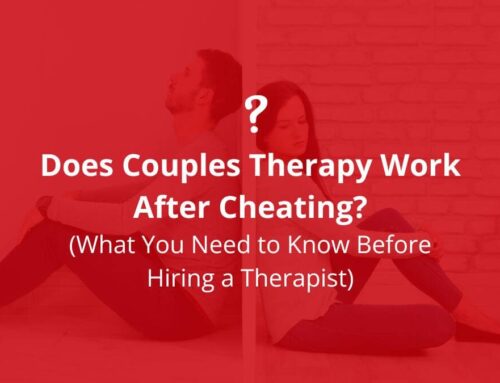Working With Marriage Counselors- The Good & The Bad
With Dr. Joe Beam
We love working with good marriage counselors.
Good marriage counselors are worth their weight in gold. As a matter of fact, sometimes they refer people to us, we put them through our workshop, and we send them right back to those counselors. And sometimes, we refer people to counselors saying, “What you need, you really could use a counselor to help you with instead of us, at least at this point.”
And so understand that we love good marriage counselors but, just like in every profession on planet Earth, there are people who are excellent at it, there are people who are mediocre, and there are people who are terrible at it.
You may be one of those people that have contacted us- many, many people tell us stories, horrendous stories about their experiences with bad marriage counselors. I’m thinking of one right now…
…a lady contacted us and said, “We went to see the marriage counselor that I thought was going to help us save our marriage. And we sat there and for the whole first hour, all that happened was my husband bashed me verbally.”
She said, “I sat there feeling as if I were being verbally and emotionally abused, and there sat that counselor that I thought would at least protect me in that situation, but she just let him go on and on and on. And then she said, ‘Okay, let’s come back next week’ and I’m thinking, ‘I don’t wanna go back and be in a situation like that. How is that possibly helping our marriage? The fact that he’s saying all these negative things about me. Isn’t that just programming him to think less and less of me? It’s certainly negative.’ “
Or, we get these all the time:
“Well, we went to see a marriage counselor and my spouse said to the counselor, ‘I don’t wanna be in this marriage anymore,’ and the counselor turned and looked at me and said, ‘Well, my job is to help each of you find happiness now. Therefore, if your spouse doesn’t want to be in the marriage anymore, then what I need to do is to help you figure out how to have an amicable divorce. And if you have children, I’ll help you figure out how to deal with your kids because if that’s what he wants, or that’s what she wants, that’s what I’m going help you do.’”
And the people are saying “Wait a minute. Wait a minute. We came to you because we were hoping to solve our problems and make our marriage good again,” to which the counselor replies, “Well, it’s not really my job. If one of you wants out, then I need to help you do that in the best way possible.”
Or even:
“We went to see the counselor two, three, four, five, whatever number of sessions, and finally he or she looked at us and said, “It’s my estimation that this marriage has no hope and the best thing in the world you guys can do is just split up. And so again, I’ll help you work through that.”
“My counselor said to me, “Well, he cheated on you, pay him back. Go cheat on him with somebody else.”
Good marriage counselors are awesome. The bad ones will actually help you destroy your marriage rather than putting it back together.
Here Are My Two Suggestions:
So let me suggest two things, if you had a bad experience with marriage counselors or if you’re contemplating a marriage counselor but thinking, “How in the world can I find the good one?”
The first would be, if you want to try marriage counseling, or perhaps you would be trying marriage counseling again, let me give you some suggestions as to how to find a good marriage counselor.
And in the second part I’ll talk about right after that, if you’re done with marriage counseling but still wanna save your marriage, what do you do? I’ll give you some suggestions about that as well.
Suggestions As To How To Find A Good Marriage Counselor
If you want to find a good marriage counselor, obviously, asking other people who have been to marriage counselors can give you some insight, but ask some specific questions like:
“Does this counselor really work on the marriage or is he or she just convinced that they want make you be happy no matter what?”
Find out about the success they had with that counselor, did he or she help you or not? Not just to end things amicably, but actually to help you with your marriage.
If you don’t know of any counselors, you may go on the internet and type marriage counseling in your city. While you will probably look for good credentials, and of course and good credentials are very helpful, but they do not necessarily tell you everything that you need to know.
#1 Visit With The Counselor Before Scheduling Counseling
And so here’s what I suggest: When you find one that you find that you might want to go see, call. Ask if you can have a five minute visit on the phone before you book your first visit. Most good counselors will actually give you that. They’ll be happy to give you five minutes on the phone. They may even say, “Drop by and I’ll spend 10 minutes with you face to face.” This is not a session. This is preparation in deciding whether or not you want to use this particular counselor- and it could be whether or not the counselor actually wants to work with you.
#2 Make Sure the Marriage Is The Client
Now, when you’re having this pre-counseling visit, ask this person if he or she focuses on the marriage as the client.
Now, if that counselor says, “I don’t know what that means,” I suggest you hang up the phone, you know, be respectful, don’t just hang up, say, “Well, thank you but I’m gonna look for somebody who understands what that means.”
So, what does that mean, Dr. Beam? Well, what it means is this: you want to find a counselor who actually wants to save the marriage. One that doesn’t see each of you individually as clients, or one of you as the client and the other as peripheral, but actually sees the marriage itself as the client.
Find a counselor that says that, “Yes, I will deal with both of you respectfully as individuals, I will, but my focus really is on the marriage. I’m gonna see the marriage as a client.”
If you’re thinking, “Where in the world did you get that idea?” I got it from a guy who actually trains marriage counselors who is just as frustrated as I am about all those times that they do more harm than good, but is awesomely in favor of the good marriage counselors and I am too. They’re amazing. They’re awesome. They’re wonderful.
#3 Ask About Their Success Rate
And then, ask about the successful experiences. If they say, “Well, one out of five” then ask what that means. If they say “Four out of five,” ask what that means as well.
I remember talking to a counselor one time and asked her, “What is your successful experience? What percentage of marriages that you work with actually make it?”
And she said, “It’s higher than 90%,” which is remarkable, so I said, “Can you tell me how you define success?”
And she said, “Yes. If they each do exactly what I tell them to do, then that’s what I consider. I count the ones of those, 90% of those actually save the marriage and make it. If either one of them does not do what I tell them to do, I don’t count them at all because they do really don’t count. I can only count the ones that do exactly what I tell them to do.”
Now, if you’re gonna use that as the criteria for a 90% success rate, please understand that’s not truly a 90% success rate.
#4 Make Sure They Can Work Within Your Belief/Value System
And then, make sure that you ask this counselor (now remember you have to do this pretty succinctly, because this pre-visit is not an hour, it’s not a half hour, it’s probably not even going to be 15 minutes) “Will you work within my belief and value system?”
Now they’re all supposed to do that and most of them will then answer and say, “Yes. I will work within your beliefs and values,” then communicate what your beliefs and values are. For example, if your religious beliefs are that marriage is for a lifetime and therefore, “I want this marriage to make it, I do not want a divorce, will you work within that belief and value system?” Ask specific questions like that.
And then, if he or she says, “Yes. I can work within those parameters, I’m glad to do so,”that’s a good sign. If they say, “Well, I understand that’s your belief and value system but that may not apply by the time I get to counseling because your husband or wife may not want to live by those same values” then you might want to ask several more questions.
#5 Find A Counselor That Will Focus You Forward- Not Backward
And then find a counselor that will focus you forward rather than backward. Most counselors are trained to let you talk about how you got into the situation that you’re in: What happened.. What got you where you are..etc. They do that like it’s an understanding. But if that becomes the focus, all the things that you have done wrong, all the things that your spouse has done wrong, all the problems that you have, then your focus is going to be backwards not forward.
And so, ask the counselor this:
“I understand you probably need some background, but I want to know, are we gonna be working with my past, my spouse’s past, is that where the primary emphasis is going to be, or will you, once you get enough understanding to know where we came from, will you help us focus forward? Because that’s what we want. Not to live in the past.”
#6 Find A Counselor That Will Protect Each Of You
Make sure that he or she will protect each of you. Make sure you tell them, “I don’t want to come in here and let my husband say all these terrible things about me…” Or, “My wife come in and beat me up verbally and emotionally…”
Make sure you say, “I need to know that if that starts to happen, you’ll stop that, that you’ll protect me emotionally, you’ll protect my spouse emotionally, so that we can focus on the future, where we’re going, rather than getting stuck into the negative emotions we might feel at the moment.“
#7 Guiding You- Not Directing You
And finally, you want one that will guide you rather than direct you. What I mean by that is be wary of any counselor that tells you exactly what to do. I.e.: “Mam, you need to do this, you need to do this, you need to do this.” Yes, sometimes, you will need to tell somebody “You need to do this,” like “You need to stop drinking” or something like that.
But typically, you want one that’s a teacher:
- One who understands where you are
- Understands where the flaws in the relationship are
- Can guide you as to how to fix those things
- To repair the problems
- To to get to a future that works for you.
It works a whole lot better with a person who teaches and educates and helps you understand and then apply, but it’s always your decision.
Overview Of Steps #1-#7
And so, if you’re looking for a marriage counselor, I would suggest you ask those questions. Make sure you find one that fits within those and then when you go to see him or her that person does not vary from those things.
Done With Marriage Counseling, But Still Want To Save Your Marriage? We Can Help.
Now, realize there’s a downside to counseling because your spouse may be saying, “Well, that didn’t work. It’s done. It’s over.” So maybe you might want to consider a different approach, something that’s not counseling or therapy. Something that’s more educational in process, more group oriented than individual.
If you choose a group-oriented process, then you want to ask the question, “Tell me about your long term successes.” In other words, not just how many marriages you guys work with that actually came out for the good, but did they stay that way? I want to know if what you’re doing, what you’re teaching, how you’re helping, actually plants good roots that helps us get to the future.”
Also, you want one that will treat each of you with absolute respect. What I mean by that is for example, in our group workshop, we don’t try to twist anybody’s arm to stay married. We don’t try to beat anybody up verbally. And even if somebody tells us during one of our intensive three-day workshops, “Well, I’m in love with another man” or “I’m in love with another woman,” we don’t beat them up for that. We listen, we understand, and we try to help by educating. We treat everybody with absolute respect which means we would never let anybody verbally beat the other person up. Because that’s not respectful, that’s not a safe environment and we believe completely and totally in having a safe environment.
As to our long term workshop successes here at Marriage Helper, if you want to consider us, Dr. Jim Grayson at Augustus State University, did a study on couples that had been in our workshop several years ago. He followed them after the Workshop for seven years and found that three out of four of those couples were still together and doing well.
Now, whether you choose us or not, these are things that you need to be looking for:
- Long term success
- Absolute respect
- Real world experience- not just somebody who read a book. You want people who actually had these situations. At least dealt with it close enough and in detail enough (either on their own or by working with so many people) that have been there, that they empathize with and work closely with, and begin to understand you.
This is more than not being judgmental. It’s really understanding you because they’ve been where you are. Because what you really want is somebody who can help you open your eyes. Not just your spouse’s eyes but your eyes. And that comes through primarily an educational process. Let us show you what the greatest and latest research says. Let us show you how that applies in the lives of real people.
For example, hundreds of thousands of people have been through courses and workshops and seminars that I’ve developed and so not only do we learn by reading the latest social science, by staying up to date on everything, by the way see how it works in the lives of real people. And what I love about our intensive workshop, for example, is at the end of the workshop, people walking up saying, “I wish I have known all this years ago. I wish I had known about me, what I have learned about me this weekend. I wish I had learned about my spouse before what I’ve learned about my spouse here in your workshop. I wish I had learned about relationships.” You understand, I could go on and on.
Again, find somebody who’s not telling you what to do, who’s not beating you up, who’s not demanding that you behave in a certain way, but someone that treats you with absolute respect, and can show you not only how you got to where you are but how you can get to where you want to go, and the path to get there.
There is Hope!
Now, please take advantage of what I suggested about the marriage counselors. If you want to go that route, find those. Find a good one and he or she will be awesome. Absolutely amazing. We love those people. Avoid the ones that do more harm than good. If you’ve had a bad marriage counseling experience, it doesn’t mean your marriage is necessarily over. A lot of people that come to our workshop have been through marriage counseling and it did more harm than good.
I’m not counting the ones, of course, that the good marriage counselors sent to us, those are often in awesome shape when they get to us because of the great work their marriage counselors do, but if you’ve been with the other kind, it’s not over. There is still hope. We’ll be glad to help you.
We have a ton of free resources on our Website and on YouTube. Or, if you call 866-903-0990, you’ll get connected to one of our client representatives. Now, it’s not a hotline, this is not a counselor or therapist. It’s somebody who will listen to you, understand your situation and guide you to what resources we have that can be of value to you, whether it’s the free ones or the ones that have fees too, but whatever you do, it’s not time to give up just because you had a bad experience. There are people that can help you. We would love to.





